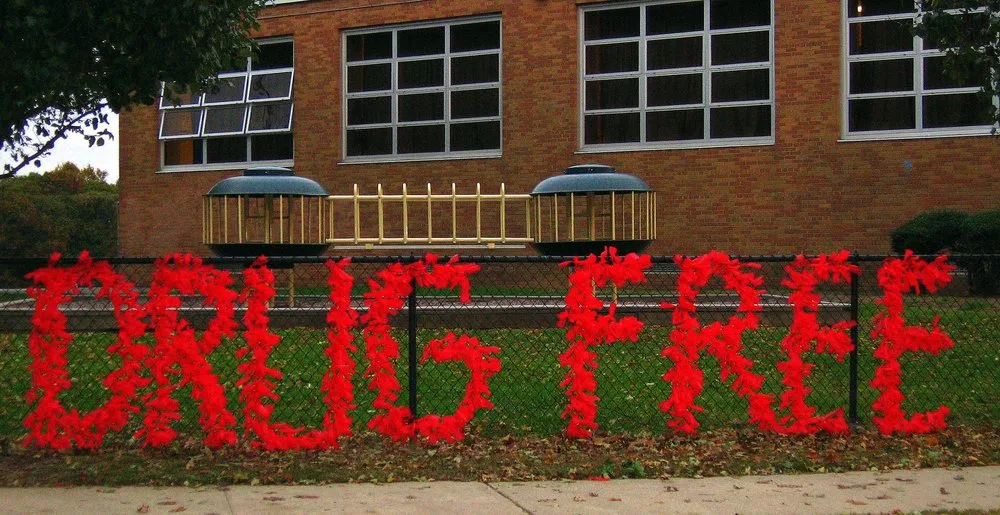


Drug education programs are often seen as a critical tool in the fight against substance abuse. However, a growing body of research suggests that most of these programs fail to achieve their intended goals. This blog post will critically assess why drug education programs often fall short of their objectives, drawing insights from the DARE (Drug Abuse Resistance Education) program as a case study.
The DARE program emerged in the 1980s amidst a growing public concern over drug use among youth. The Reagan administration's "War on Drugs" was in full swing, and DARE was seen as a promising solution to prevent drug use and promote healthy lifestyles.
The Los Angeles Police Department developed DARE and initially implemented it in elementary schools in California. The program quickly gained popularity and spread nationwide, as well as in 50+ other countries, reaching over 1.5 million students annually. At its peak, DARE was practiced in 75% of US schools, costing hundreds of millions of dollars to run.
DARE's success was attributed to its focus on prevention, emphasis on law enforcement involvement and use of uniformed police officers as instructors. The program aimed to educate students about the dangers of drug use, provide them with refusal skills and instill a sense of drug resistance.

The primary objectives of DARE and similar drug education initiatives were to:
Despite the widespread implementation and popularity, DARE and similar initiatives have faced criticism for their effectiveness and approach. Some of the key missteps include:
DARE, one of the most widely implemented drug education programs worldwide has been criticized for its emphasis on a simplistic "Just Say No" message. This approach assumes that drug use is solely a matter of personal choice and that individuals can resist peer pressure by saying no. However, this message fails to address the complex factors that lead to substance abuse, like mental health issues, social determinants of health, and underlying trauma.
DARE is also known for its scare tactics, which often exaggerate the risks associated with drug use. For example, the program claimed that marijuana poses detrimental health effects, has no medicinal value and causes lung disease and insanity. Such claims make it hard for gain the target audience trust. While it is important to educate young people about the potential harms of substance abuse, doing so in a way that instills undue fear can backfire. Misinformation or simply overstating the risks can lead to mistrust of the program and make it less effective in promoting healthy decision-making.
The delivery of drug education programs can also impact their effectiveness. Traditional lecture-style formats may not engage students and may fail to promote active learning and critical thinking. Additionally, having police officers deliver the program can create a sense of fear or distrust among students, further hindering the program's effectiveness.
Drug use is often a complex issue with underlying causes such as mental health problems, trauma, or social and economic factors. Drug education programs that fail to address these underlying issues are unlikely to be effective in preventing substance abuse.
Some of the information presented in DARE and other drug education programs has been questioned for its accuracy and consistency with scientific research. This can undermine the program's credibility and make it less effective in influencing students' attitudes and behaviors.

Drug education has the potential to play a significant role in preventing substance abuse among young people. However, the effectiveness of drug education programs depends on their approach, content, and implementation. Traditional programs like DARE, which rely on fear-based tactics and lack evidence-based curriculum, have often fallen short of their goals.
On the other hand, others like Above the Influence and Be Under Your Own Influence appear to be effective because they tap into the desire of teens to be self-sufficient and independent. Teens crave being autonomous, effective and independent. If they perceive using drugs as a way to showcase autonomy and independence, it becomes an uphill battle to discourage them against drug use. This explains why these two education programs led to a dip in marijuana use.
With that said, here are some more effective approaches to drug education based on research and a holistic understanding of addiction:
Drug education should focus on teaching practical skills that empower students to make healthy choices and resist peer pressure. This includes teaching communication skills, refusal skills, problem-solving skills, and stress management techniques. Additionally, incorporating social-emotional learning programs can help students develop self-management, self-awareness, relationship skills, social awareness, and responsible decision-making.
Drug use is often a complex issue with underlying causes such as mental health problems, trauma, social and economic factors. Drug education programs should not only focus on the immediate risks of drug use but also address these underlying issues. This may involve promoting positive social connections, providing access to mental health services, and addressing structural inequalities that contribute to substance abuse.
Drug education programs should be based on rigorous addiction research and incorporate evidence-based curricula and teaching methods. This means using teaching strategies that are engaging, interactive, and age-appropriate. It also means using curricula that are up-to-date and accurate, reflecting current scientific understanding of the risks and consequences of drug use.
Drug education should not be a one-time event. Ongoing support and follow-up are essential to help students maintain healthy behaviors and make positive choices. This may involve providing access to mentors, counselors, or support groups. It may also involve offering booster sessions or refresher courses to reinforce key messages and skills.
A positive and supportive school environment can play a significant role in preventing drug use. As such, schools should create a climate of open communication, mutual respect, and positive reinforcement. It also means providing opportunities for students to engage in extracurricular activities, develop healthy relationships, and feel connected to their school community.
Household members play a crucial role in shaping their children's attitudes and behaviors toward drugs. Drug education programs should involve parents and families to provide them with the knowledge and skills to communicate effectively with their children about drugs. Additionally, creating strong parent-child relationships and fostering open communication at home can help reduce the risk of drug use among youth.
Effective drug prevention requires a holistic approach that addresses individual, familial, and community factors. This includes collaborating with schools, law enforcement agencies, community organizations, and healthcare providers to develop comprehensive prevention strategies that address the root causes of substance abuse and promote healthy lifestyles.
Drug education programs have often failed to prevent substance abuse due to their reliance on scare tactics and propaganda. Effective drug education should focus on understanding addiction and empowering individuals to make healthy choices.


